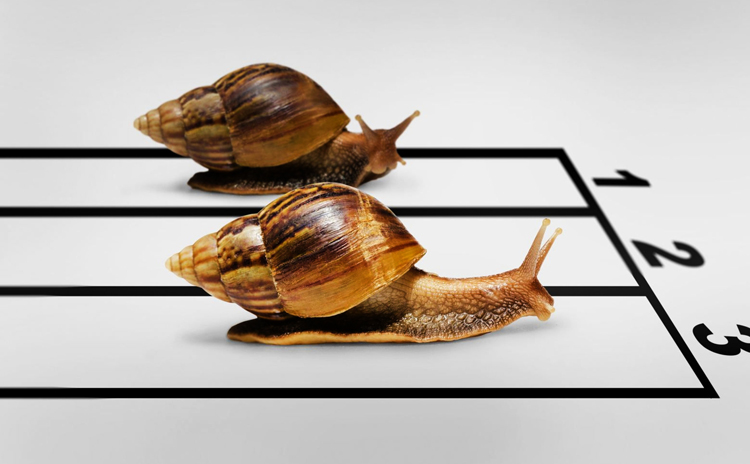
I want you to think about your significant other or best friend. How long did it take to cultivate and build that relationship to where it is today? Most likely, a very long time. Even if you think you know that person very well, the fact is that you are still finding out new things about him or her.
As you know very well by now, Richard and I are big on creating relationships with donors, rather than simply seeking a transaction of some type. We know that the only way to truly engage a donor and understand his passions and interests is to know who the donor is. When you get there with a donor, amazing things happen for the donor and for your organization.
Here is the problem, though. You (or your manager) have no patience to build relationships with donors. This is because you continue to focus on “the money.” The money drives you to get transactions (the actual giving of cash) from donors. The pressure that comes from your inner desire to “win” is enormous, just as it is from an organizational culture that doesn’t view donors as part of its mission and is concerned only about the numbers.
The best major gift officers I’ve known all have an inner sense of calmness about them. They actually emanate an energy full of joy, empathy and compassion. They are not worried about “the money.” They are focused on their donors, and they concentrate on how to give their donors an incredible experience with their philanthropic giving.
The reason they know how to give their donors this amazing experience is that they have worked hard to understand who their donors are, what they care about and what brings them joy. This can sometimes take many years.
Now, you might be thinking, “I don’t have years to wait for a donor on my caseload to make a gift. I have goals I have to meet!”
I hear this rebuke (and something similar from managers and CEOs) all the time. Let me be clear. While you are getting to know your donors, you are still soliciting them for gifts, and your donors are giving. That is part of the relationship-building. That is part of the mutual trust-building between your organization and the donor. However, what you are working toward is helping the donor make a transformational gift that will forever change him or her.
So in practical terms, this means you are most likely not taking a $10,000-a-year donor and moving her to make a high six-figure gift right away. Perhaps, you will solicit this donor for a $20,000 gift after you know what drives her giving; but a really significant gift will take time… maybe many years. This is what we see frustrating many MGOs, managers and CEOs. This is also where many mistakes are made by overzealous fundraisers who focus on getting the money.
I know an MGO who operates simultaneously in several very different stages of relationship-building with her portfolio. She has a handful of donors she has been cultivating and stewarding for over 10 years. They have been making significant gifts, but she knows that in time each may make a transformational gift.
She has other donors with whom she’s built a lot of trust and goodwill. They have made some nice gifts already, but they are also working on building their wealth. Over time, some of those donors (if properly cared for) will become like the handful she is cultivating now for a transformational gift.
Finally, she has donors whom she is really just starting to get to know. Some of these donors she has been cultivating anywhere from 6 months to 2 years. In her mind, she is just getting to know them. She is soliciting gifts from these donors, but it will take time, energy and more trust-building to help each of these donors do something incredible with his philanthropy.
You see, you can’t rush the process of understanding a donor’s passions and interests. Even if you are at a place where you know this about a donor, that doesn’t mean you’re done cultivating that relationship. Just like the relationship you have with your significant other or best friend, it will always take work.
Those MGOs I mentioned who have this inner calmness about them – they almost always achieve their goals. If they don’t, it’s not because they didn’t work their plan. This is because their great joy is in helping donors find their great joy.
Philanthropy is about love, not money. Work with your donors from that place of love, and you will see transformation. You will also see growth in revenue for your organization.
Jeff
Search Blog Posts

You Can’t Rush a Relationship
1 Comment
Trackbacks/Pingbacks
- What’s the difference between a transaction or a relationship gift? | Wild Woman Fundraising - […] Jeff goes on, in a post titled “You Can’t Rush a Relationship”: […]






Having worked in college development offices I can say that this approach does not happen much. There are a few reasons for this.
Often a college is in a major campaign that has a dollar goal that needs to be reached in a 5-7 yr period and pressure comes down president to VP to managers and MGOs to submit proposals and secure gifts. Metrics tend to be number of visits and proposals entered.
Moreover, (unlike the Veritus qualification process which is based on logic) prospect case loads are always assigned by research staff who often assign people based on capacity without much consideration to giving history or history of response to previous officers. Therefore a New MGO has to start process with their random pool and spends an inordinate amount of time on weeding through the list many of which don’t have a giving record worthy of being assigned while reaching questionable goals for visits which only represents a piece of the overall cultivation picture.
I think many MGOs have the desire to build these long term relationships but the culture within most organizations still focuses on money particularly when a campaign sets a certain time frame. And, given
that most orgs do not use the Veritus approach to creating case loads combined with lack of good management officers often leave to go to the next job before they can build that type of transformational gift.
The Veritus approach for caseloads gives the officer the most inclined customers to cultivate. This reduces frustration of having to waste so much time on people not interested in larger giving. Focus is solely on building relationships w people who are inclined to do so. I imagine this helps create an environment that leads to better relationships and more transformational giving.